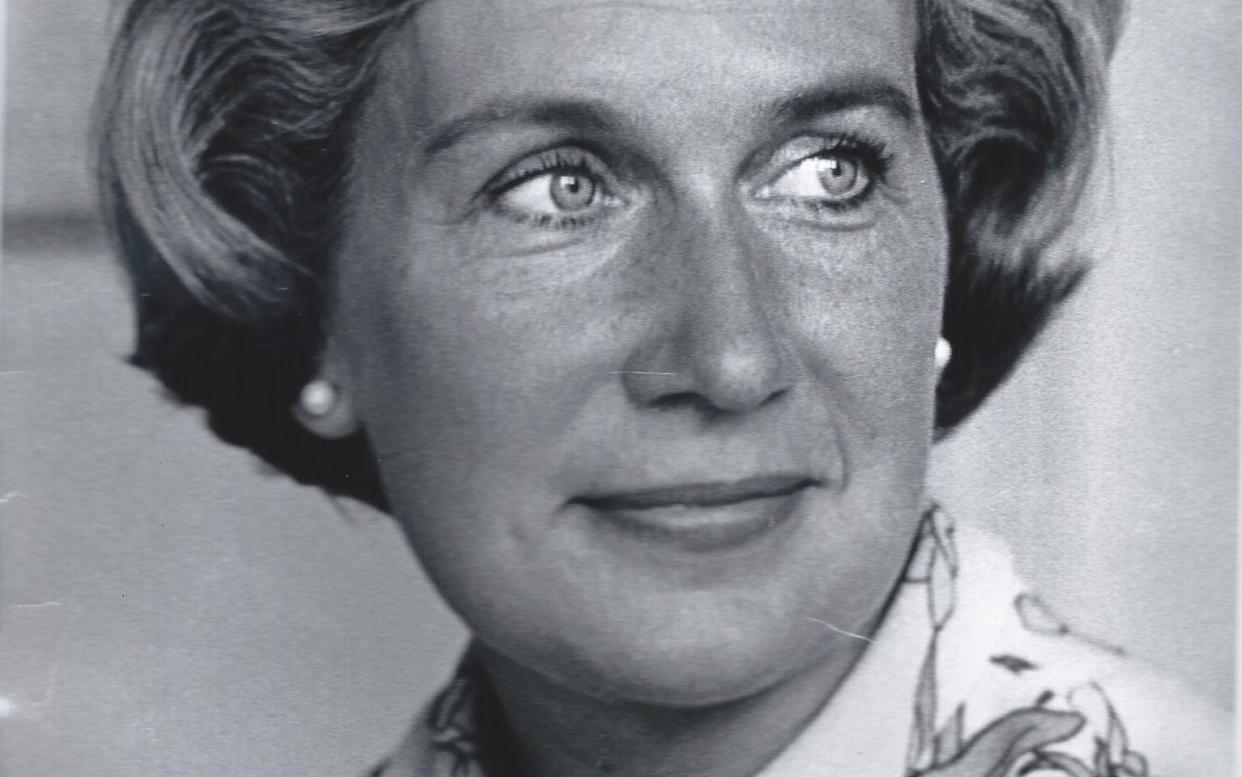Wendy Noel, actress, Agatha Christie’s stage manager and later ‘queen of voiceover agents’

Wendy Noel, who has died aged 96, enjoyed an eventful career on the fringes of 1950s British theatre, as an actress with the adventurous Citizens Theatre in Glasgow, as stage manager for Agatha Christie productions and as Grace Fairbrother in the disastrous 1954 stage adaptation of The Archers, before finding her métier in 1960s and 1970s Soho as “the queen of voiceover agents”.
“All the advertising executives trusted her,” recalled Miriam Margolyes. “If Wendy Noel suggested one of her voice artists, well – you got the job.”
Along the way Wendy Noel shared a flat with Peter O’Toole, turned down an offer to be Anthony Armstrong-Jones’s personal assistant, did odd jobs for Vivien Leigh and served as Judy Garland’s minder in 1964 at Night of a Hundred Stars, a midnight revue held at the London Palladium.
The erstwhile star of The Wizard of Oz had just discharged herself from a nursing home and was looking “rather frail”, recalled Wendy Noel, “like a stick insect”. Judy Garland told the show’s director that she could not sing, on doctors’ advice, but would say a few words at the end.
After The Beatles’ turn, she was escorted to the stage by Wendy Noel, and appeared in a lone spotlight, whereupon the crowd demanded: “Sing, Judy, sing!” She then mesmerised the theatre with Over the Rainbow, to a standing ovation.
Addicted to the stage from an early age, Wendy Noel was happiest in the theatre, and between roles or stage managing jobs she would work as an usherette, preferring the Upper Circles (“no old peroxide blondes in charge of us there”, she said).
As an agent, working for Bryan Drew, she went on to represent Anna Massey – a lifelong friend – alongside such recognisable voices (if not household names) as Richard Bebb (who had been the second voice to Richard Burton’s first voice in the original radio production of Under Milk Wood), Sophie Neville (Titty in Swallows and Amazons), John Shrapnel (Radio 4’s Inspector Morse), Marise Hepworth, Patrick Allen, Daphne Neville, John Baddeley and Denise Bryer. She claimed to have turned down Joanna Lumley, on the grounds that she was a model rather than a trained actress, a decision she did not regret.
A young Miriam Margolyes was told that “if you got onto Wendy Noel’s books, apparently, you were made”. She duly sent in her tape and was told by Wendy Noel, in a voice of exemplary crispness, that her stable was full, but that she would be in touch if a gap arose. The call eventually came, several years later, at Miriam Margolyes’s mother’s wake in 1974.
“I was in grief,” recalled Miriam Margolyes, “but as I put the phone down, I thought, ‘If only Mummy could know I’ve got the best voiceover agent in London’.” By the mid-1980s Miriam Margolyes had become the top-earning female voiceover artist in the country, although Wendy Noel told her on a number of occasions that “she didn’t have to swear quite so much to be funny”.
Elizabeth Noel Wendy Birkett-Barker was born in Nottingham on September 19 1928, the elder of two daughters to Greville Birkett-Barker, who managed a lace factory, and Cochrane, née Jenkins, who before her marriage had worked as a secretary at the Admiralty. Wendy was given the middle name Noel in honour of an uncle killed in 1918.
Her comfortable middle-class childhood, with Nanny in the nursery and holidays in Cornwall, was blighted by the ill health of her mother, who eventually died of MS in 1948; the collapse of her father’s business, meanwhile, left them with money worries. Her convent boarding-school, New Hall in Essex, was an escape from these troubles.
She joined a theatre company in Manchester and then in 1948 was interviewed for the Glasgow Citizens Theatre by Sibyl Thorndike in her London flat. Wendy Noel would spend three years with the Citizens, which had a formidably highbrow reputation as the most European of the British repertory companies. Among her peers there were Stanley Baxter, Phyllida Law and Fulton Mackay (later in Porridge).
In 1952 she made two film appearances, in The Brave Don’t Cry, a bleak piece about the recent Knockshinnoch mining disaster, and You’re Only Young Twice, a comedy with Charles Hawtrey and a young Ronnie Corbett, who would become a close friend.
She went on to stage manage West End productions under the auspices of the impresario Peter Saunders. Many of these were Agatha Christie plays; in one, she managed to bring down the curtain two pages before the end of the play, about which the novelist was very gracious. “Just the occupational hazards of First Nights,” she wrote to Wendy.
It was as stage manager of The Water Gypsies by AP Herbert that she met her future husband, the Australian opera singer Laurie Payne; Herbert wrote a poem for their wedding in 1956.
That marriage was dissolved and in the 1960s she lived in Barons Court (opposite, as it happens, Mandy Rice-Davies) with the actor Simon Oates, before marrying John Forge, a widowed farmer with four children, in 1969; he predeceased her in 2008.
Always strong-minded, forthright and at times demanding, she nevertheless retained her charm to the end, especially if the recipient were a young man.
Wendy Noel, born September 19 1928, died July 26 2024
